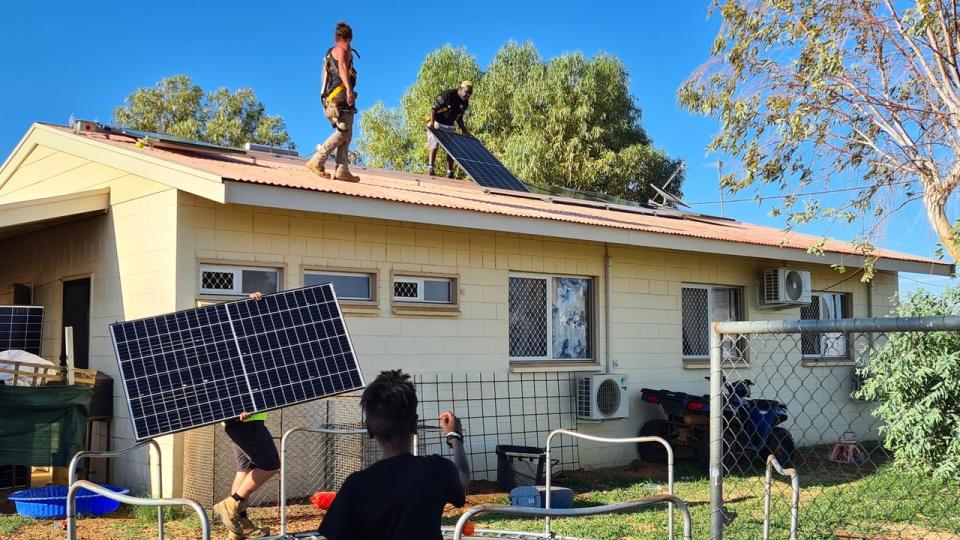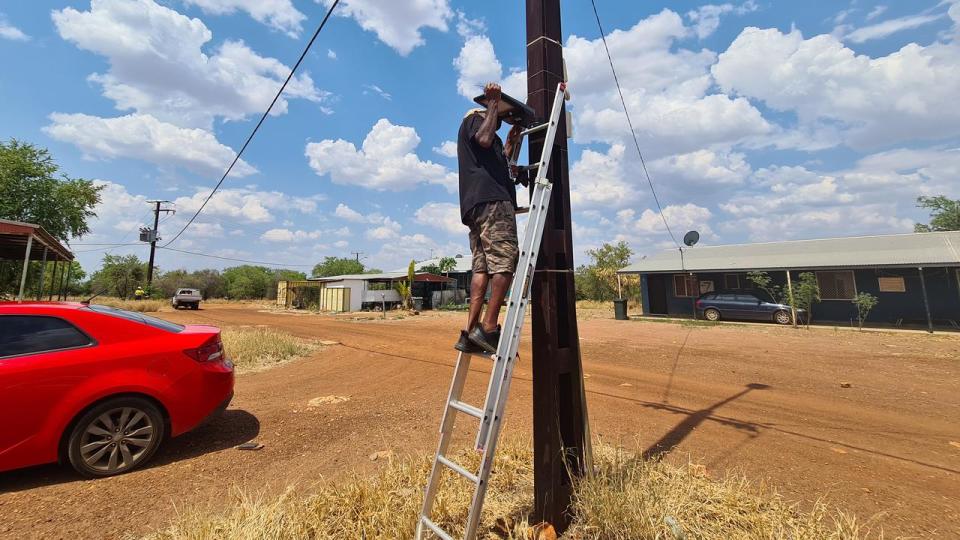Clean energy rollout must address 'historic injustice'
Indigenous Australians say they want to shake off a history of economic development "being done to us, not with us" with a stake in the renewable energy revolution.
"We have around 300,000 First Nations homes with unacceptable conditions in relation to accessing power," Karrina Nolan, co-Chair of the First Nations Clean Energy Network, told a conference in Adelaide on Wednesday.
She called for the upcoming federal budget to do more to switch off diesel generators, increase the energy efficiency of households and build a local workforce.

Marlinja in the remote Barkly region is one of many remote communities experiencing extreme energy insecurity, with high household power costs and lengthy system outages when dealing with the Northern Territory's extreme heat.
A solar-powered community centre built in 2021 is part of a plan for the area to generate its own electricity from solar-powered microgrids, backed up by batteries, which could serve as a national blueprint.
Network co-chair Chris Croker said other advanced economies understand "the road to net zero runs through First Nations lands".
For example, there are 15 significant First Nations clean energy partnerships in Australia, compared to Canada's more than 200 large-scale revenue-generating projects that have Indigenous participation and ownership.
"Government has talked up First Nations partnerships in the energy transition, but where's the action on the ground? There's been no change in major policy or action," Mr Croker said.
He called for significant investment and access to capital similar to the investment by the United States into tribal nations and Canada into First Nations, Inuit and Métis.
"None of us want a repeat of the past. We know this is a massive opportunity, for jobs, business and wealth generation," he said.

Chair of the National Native Title Council Kado Muir said the extraction of resources from country without Traditional Owner consent has been the economic foundation of Australia.
"The clean energy revolution is an opportunity for industry and government to redress this exploitation and work to address this historic injustice, with Traditional Owners as equity partners in projects," he said.
Energy Minister Chris Bowen will release a draft First Nations Clean Energy Strategy "in coming weeks" for consultation, with access to reliable clean energy established as a human right.


